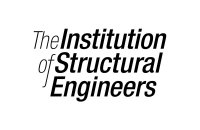The built environment – comprising infrastructure and buildings – is responsible for around 40% of the UK’s primary energy use, and a similar proportion of carbon emissions. To avoid dangerous levels of climate change, it is essential that the sector decarbonises by mid-century, and that this transformation occurs globally. Moreover, existing and future built environment assets must be adapted to the climate change that is already locked-in, and designed holistically to be part of climate-resilient, sustainable societies.
This is part 2 of a two-part course. It builds on Part 1, which covers climate science, impacts and resilience, and focuses on carbon mitigation, i.e., reducing the built environment sector’s greenhouse gas emissions in line with climate targets.
Aims & Objectives:
Objectives:
The Decarbonisation course is designed to provide engineers, other professionals, and leaders with an understanding of the built environment sector’s contribution to climate change and how this can be reduced in line with climate targets. The course presents the latest carbon management strategies and protocols and looks at issues of particular significance to the sector including how to decarbonise steel and concrete. Delegates are introduced to the analogy between carbon management and health and safety management, where we discuss the importance of leadership in promoting cultural change and developing effective incentives.
Learning outcomes:
On completion of this course, delegates will be able to:
- Examine the significance of the built environment as a driver of climate change in the context of UK and international targets and commitments.
- Distinguish between embodied and operational carbon emissions in the context of lifecycle assessment.
- Define Scope 1, 2 and 3 emissions for carbon accounting purposes, and debate the issues surrounding carbon offsetting.
- Discuss and debate the lessons that can be applied from health and safety management to promote rapid cultural and behavioural change.
- Describe the key elements of the PAS 2080 carbon management framework.
- Appreciate the significance of low-carbon procurement and explain how it is applied within the NEC framework.
- Describe current trends in carbon mitigation including design considerations, construction activities, and low-carbon steel and concrete.
- Describe the idea of ‘win-win’ or triple-win solutions with respect to reducing emissions and other drivers including climate resilient development and the wider UN Sustainable Development Goals.
Course Outline:
Understanding Built Environment Emissions
- A summary of the 6th IPCC report on mitigation of climate change
- Government targets
- Emissions from the built environment
- Carbon accounting:
- Embodied and operational emissions, lifecycle assessment,
- Accounting standards and protocols
- Scope 1, 2 and 3 emissions
- Carbon offsetting
Carbon Management
- Lessons from health and safety
- Carbon management via PAS 2080
- Low-carbon procurement
Practical Solutions
- Design considerations
- Timber in construction
- Low-carbon steel and concrete
- Buildings retrofit
- Low-carbon plant and fuels
- Nature-based solutions
- Circularity and waste reduction
- Creating ‘win-win’ and triple win solutions for climate action and other UN Sustainable Development Goals (SDGs)
Mode of Delivery:
- Presentation of material (online typically)
- Visual aids e.g. short video
- Group discussion
- Group exercises with feedback (using e.g. breakout rooms)
- Q&A session
Benefits of Attending:
The course will equip participants with a good understanding of climate change with respect to the built environment. It covers the latest trends in carbon reduction in design and construction, and examples of ‘win-win’ holistic solutions for the built environment sector.
At the end of the course participants should feel engaged with the climate challenge and have increased agency to drive positive change within their projects and organisations.
Intended For:
The course is intended for engineers, other professionals, and leaders working in the built environment sector.
Pre-Course Requirements:
- Complete a pre-course questionnaire
- Prepare notes of any experience/knowledge of past projects show-casing climate action, and a summary of climate-related strategies at their organisation (if possible / applicable)








